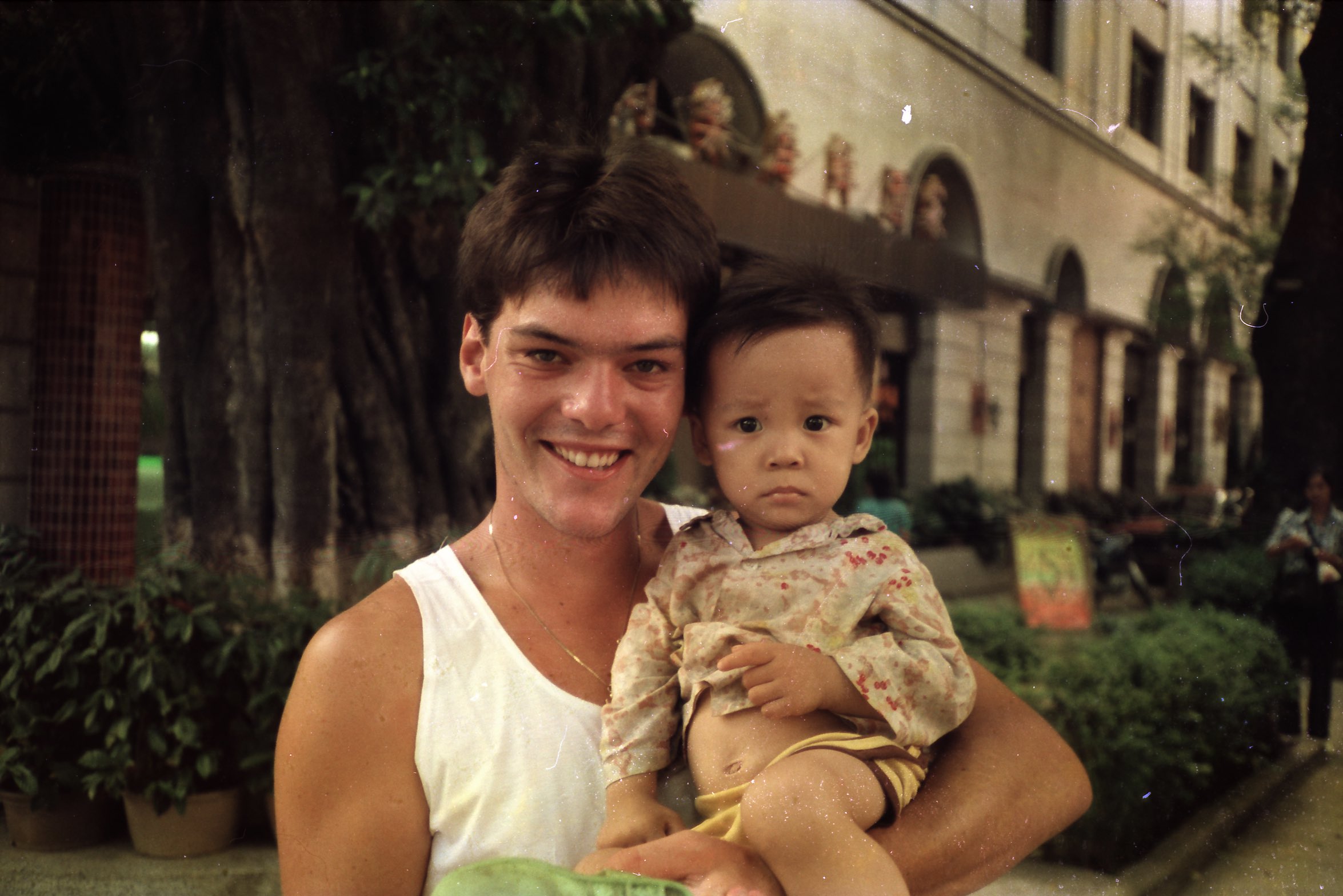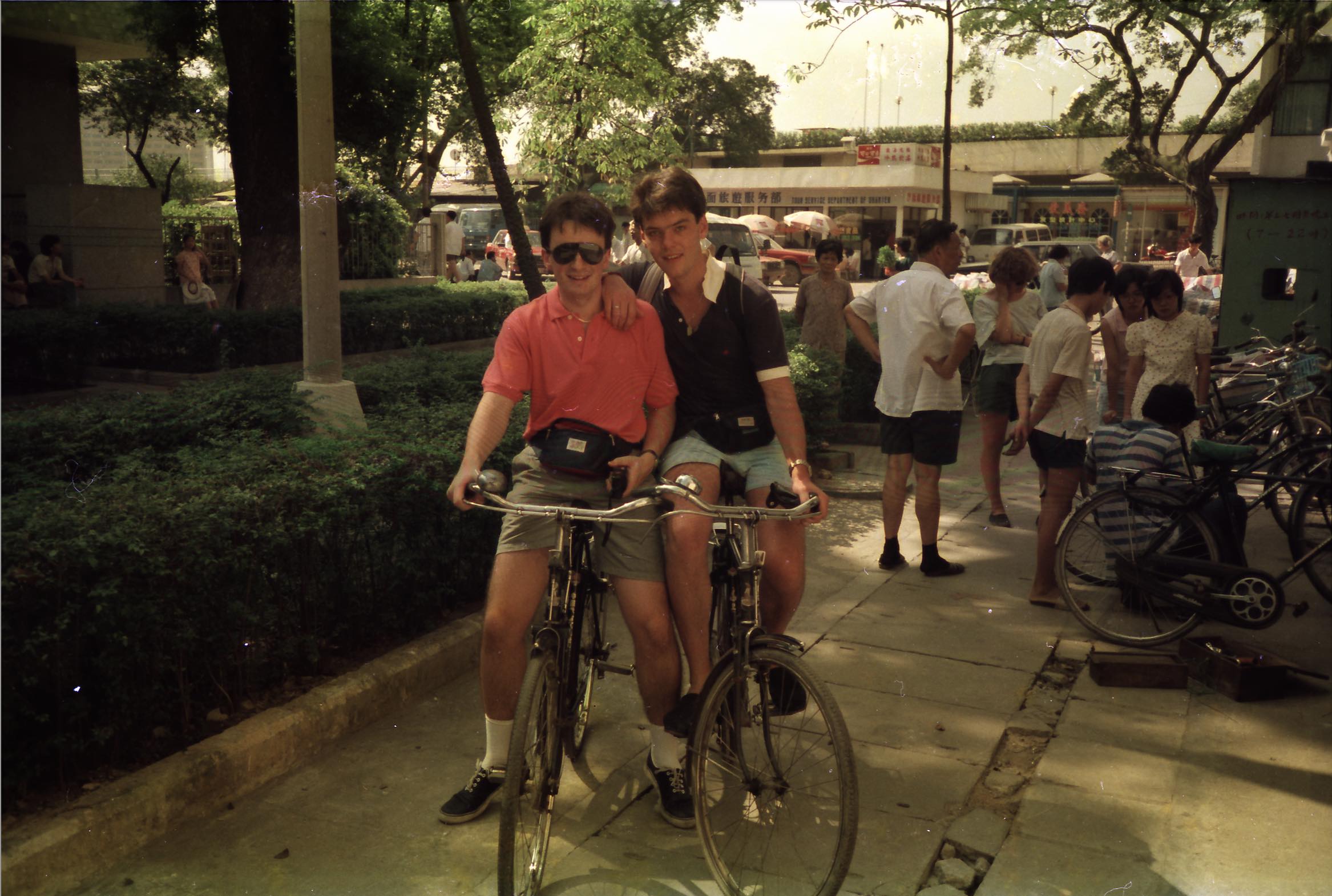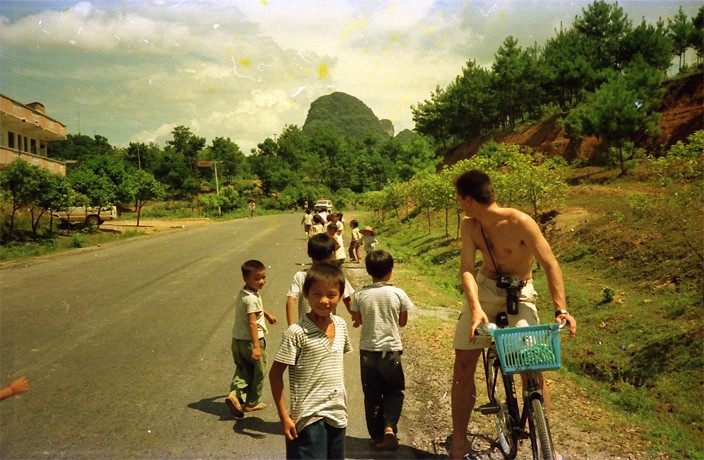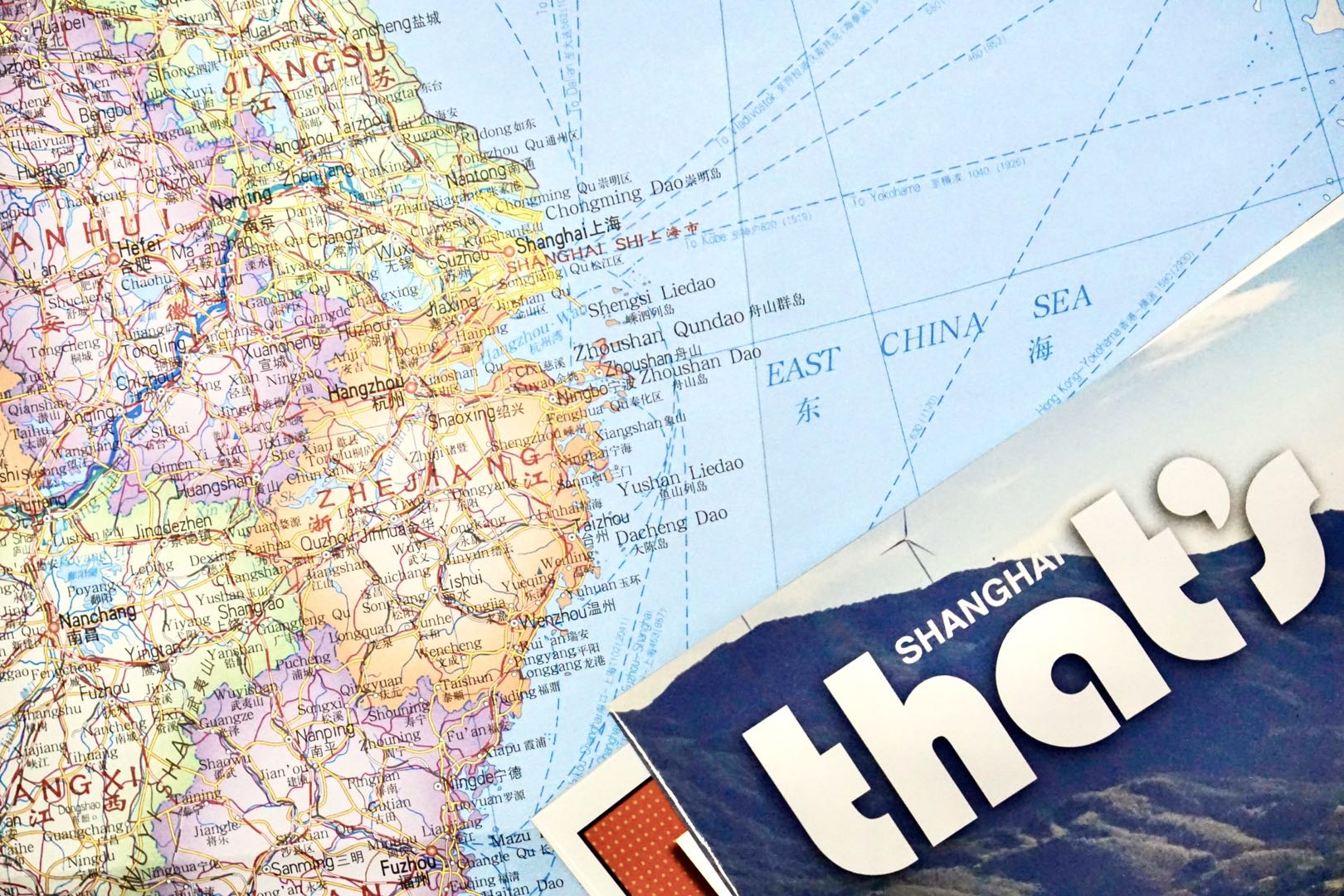As a young boy growing up in London, Jeremy Sargent used to grab the metal bars to the gates at Buckingham Palace and gaze at the towering mansion, wondering what happens behind the walls of the Queen of England’s home. At the time he had no way of knowing that more than 40 years later he would be invited inside. And he definitely didn’t know it would be because of his China adventures.

Jeremy Sargent receiving his OBE from Prince Charles
Those in Guangzhou may know Sargent as the founder and owner of The Happy Monk, a British-themed bar and restaurant with five stores located throughout the city. However, what a lot of people don’t know is that his official title is Jeremy Sargent OBE (Order of the British Empire), which was granted to him for his services to British businesses in China.
Sargent was also a part of one of the first groups of students to come to China after the country's reform and opening-up policies, and has spent more than 30 years living in the Middle Kingdom.
“It was my dad that pushed me to come to China,” explains Sargent in a quiet corner of The Happy Monk in Taojin, Guangzhou’s Yuexiu district. “I lived in Hong Kong with my mother and father in the early 80s and my dad could see that China was opening up.”

Posing with a local baby in Guangzhou, 1986
Sargent’s father, an engineer working on international projects between Hong Kong and the United Kingdom, discouraged his son from following in his footsteps and getting an engineering degree, and instead pushed him towards Mandarin studies.
“He said ‘It's easier to teach Mandarin speakers engineering skills than to teach an engineer Mandarin.’ So, I did my first degree at Leeds University in the Department of East Asian studies with a focus on Modern Chinese and graduated in 1990. But I was always fascinated with the Chinese language. As a kid in Hong Kong, I learned over 100 Chinese characters by copying subtitles on TV."
While studying in Leeds, Sargent and his classmates spent a year studying at Fudan University, Shanghai.
“A lot of people don't realize that even during the Cultural Revolution (1966-1976) and directly afterward, there were foreigners living in China, but not many,” Sargent explains. “We were one of the early waves of students. Although we weren’t the first, there weren't many foreign students in China then.”

Lhasa, Tibet Autonomous Region
During his year in Shanghai, Sargent enjoyed long holidays in the summer, winter and during the Chinese New Year. He traveled mainly on hard sleeper trains and spent the Lunar New Year celebrations living in a hut in the middle of winter in Lhasa, the capital of the Tibet Autonomous Region.
“It was freezing and we had altitude sickness, so we didn’t travel far outside of the city,” Sargent reminisces, while taking a sip from his cappuccino, which a The Happy Monk waiter has just brought over. “There were no restrictions then, we could travel using our China visa. For many people there, it was their first-time seeing foreigners and we just hung around the city taking it all in.”

The hut in Lhasa, Tibet Autonomous Region
When we spoke to Sargent, he had just returned from a trip to Yangshuo, a city in the Guangxi Zhuang Autonomous Region that he first visited in 1987.
Yangshuo is a popular tourist spot in South China, known for its beautiful rivers and mountains which feature on the country’s RMB20 banknote. However, despite its connection to the countryside and vast farming networks, the city’s center has become a thriving commercial hub. The city center is a different world from the countryside that lies on its doorstep; the famous West Road is full of clubs, bars and a sea of western restaurants. Even when Sargent stepped foot in Yangshuo over 30 years ago, he could see the road it was heading down.
“Yangshuo was one of the first places in China you could get a slice of pizza and a can of coke,” the China veteran recalls. “People would travel there for the novelty of having a coke in China. To put it into perspective, I remember back in the 80s people would joke about McDonald's coming to China as if it would never happen.”

Jeremy Sargent's friend posing for a picture with the manager of a pizza restaurant in Yangshuo
China has come a long way since then. The novelty of coke and pizza snowballed, ultimately allowing people like Sargent to open establishments such as The Happy Monk and bring bites of the West to the Chinese mainland.
Sargent left China after his year in Shanghai and returned to England, where he worked several different jobs. It wasn’t until 1996 that he would make his return to the Chinese mainland and live in Guangzhou, a city he has now called home for 26 years.
“I did some odd jobs in England for a few years but I didn’t really know what to do. I thought if I get a law qualification, at least I’ll be able to pay off my student debt, so I did a law conversion.”
After obtaining a law degree in the early 90s, Sargent moved back to Hong Kong where he worked as a solicitor at Stephenson Harwood. After finishing a two-year training program, the law firm asked him if he wanted to “make the move up north” and work in the office they were setting up in Guangzhou.
“It was originally a six-month posting, but you’re learning so much and before you know it, six months becomes a year, a year becomes two, and by the end, I had stayed with them for 10 years.”

Riding bikes around Guangzhou in 1986
His time working as a lawyer in Guangzhou would actually prove pivotal in his ability to tap into the Chinese market and open The Happy Monk, one of Guangzhou’s most popular establishments offering live music and authentic western food.
After leaving Stephenson Harwood in 2007, Sargent went on to open his own business consultancy firm, JSA China Consultancy. The company proved to be a big success, regularly representing Fortune 100 clients who wanted to enter the Chinese market. Although Sargent couldn’t say what those companies are (they are clients after all) he did tell us what his firm does.
“Our role at JSA was to kind of peel the onion, the layers, and get to the point where a company felt better advised and better informed about how to enter the Chinese market.
“We’d look at the options, how to structure it from a corporate and from a legal perspective and ask whether or not they are going to find a Chinese partner, are they setting up from scratch and are they building a factory? That's a lot of the bread-and-butter work that we used to do.”

Yangshuo, 1986
Armed with a vast knowledge of the Chinese market and fluent in Mandarin from his long tenure in the country, Sargent opened The Happy Monk in 2010 with his wife Qingqing.
“It seemed the time was right, but we didn’t want to jump into anything. Originally, we were thinking about a coffee shop and then we thought maybe a gastrobar.”
For those not sure what a gastrobar is, in the UK there are pubs and gastropubs. A regular pub is a drinking house with beer, wines and spirits, whereas a gastropub offers good food in a restaurant cross pub type of establishment. A gastrobar is that same style of restaurant, but with more bar than pub vibes.
As to why Sargent made the jump, he says “I like bringing people together and I'm quite sociable. The idea of hospitality felt like a natural choice. It was a bit of a punt; this industry is notoriously difficult when you start. We’re lucky because the consumer market in China has grown very quickly over the last decade, so we sort of rode that wave to some extent.”
Sargent’s wife is responsible for the design, the menus and the general presentation of The Happy Monk establishments. But it’s more than a family business in the sense it was opened by a husband and wife.
Several key members of staff have been with The Happy Monk from the beginning, such as the bar manager Silver, who started as a barman and manager Lili, who celebrated her 12th anniversary with the company early this year. This is where Sargent spends most of his time, he's a people developer and wants to mentor his staff to become the best person they can be.

Sargent and his OBE at Buckingham Palace
Always striving to improve himself and his business, Sargent completed a global EMBA in Marketing and Admissions set up by London Business School, Columbia University Business School and Hong Kong University Business School in 2019.
The course allowed him to travel between London, New York and Hong Kong to attend different business schools over a two-year period. As we wind down our chat, it’s the notion of always learning that we end on.
“I will always keep chipping away at learning Chinese, for sure. It’s a language that needs a lot of attention if you’re going to learn it,” Sargent explains, when we ask him what’s next on the horizon for a man who needs to keep progressing.
“Recently, I’ve been thinking about learning video editing because video as a medium has just exploded. As you can see from my pictures, I’ve always recorded things and kept memories but not everyone in my day was like that. This future generation will have everything recorded.”
Sargent is a regular attendee at many of The Happy Monk events throughout Guangzhou, which range from cocktail academies to club nights and watching football to storytelling. If you want to experience them for yourself, scan the QR code to follow The Happy Monk on WeChat.

[All images via Jeremy Sargent OBE]





















0 User Comments